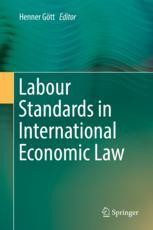Civil Society Meetings in EU Free Trade Agreements: The Purposes Unravelled

In the last decade the EU has embarked on a series of deep and comprehensive Free Trade Agreements (FTAs). Each of these agreements includes a chapter on trade and sustainable development, encompassing labour (and environmental) provisions. Against the background of increased liberalization and rising attention paid to sustainable development, EU FTAs set up civil society mechanisms to advance the implementation of these commitments. While civil society meetings have become increasingly important in practice, the assessment of their success differs widely among actors. While some see it as a ‘fig leaf’ or ‘talking shop’, others are more optimistic about its potential to empower marginalised groups within EU trading partners. Evaluations will continue to diverge as long as the exact purposes of the civil society meetings have not been clarified. This chapter is a first attempt to uncover the purposes behind them. By combining a content analysis on the legal texts and political discourse we identify four analytically distinct purposes: instrumental (gathering support for the FTA), functional (monitoring and information gathering on the implementation), deliberative (promoting democratic governance) and policy influence (advising the governments). We do not aim to prioritise one purpose over another. However, we do argue that the primordial purpose of the mechanisms should depend on the domestic setting of the trade partner country and on the matureness of the mechanism.
